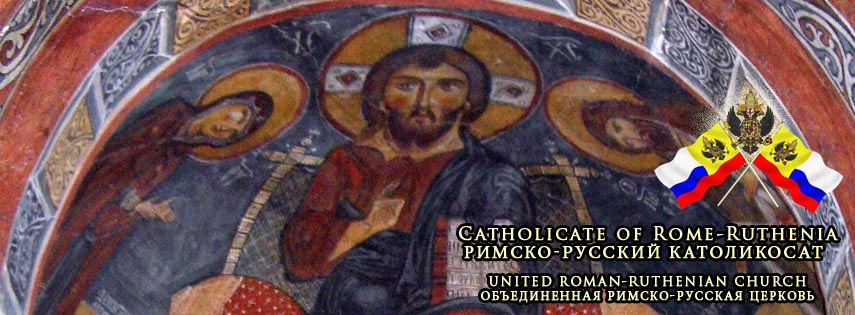 |
| St. Archbishop Aftimios Ofiesh Official Icon in the United Roman-Ruthenian Church |
St. Aftimios Ofiesh is a name that resonates with controversy and reverence in the annals of Orthodox Christianity. As the successor to St. Raphael of Brooklyn, St. Aftimios was poised to continue a legacy of faith and dedication within the Syrian-Russian Orthodox community in North America and stands as one of the most intriguing figures in Orthodox history. However, his tenure as an Orthodox patriarch was marked by significant challenges and disputes that have led many to malign his contributions to this day, largely due to misunderstandings and self-righteous resistance from other Orthodox leaders. Despite these controversies, an examination of his life and actions reveals a steadfast commitment to authentic Orthodoxy and true Christian spirit.
Orthodox Spirit Amidst Adversity
Despite facing significant opposition, St. Aftimios remained steadfast in his commitment to authentic Orthodoxy and the true Christian spirit. His dedication was evident in his pastoral care, theological contributions, and efforts to establish a united Orthodox Church that transcended ethnic and national divisions.
The backlash against St. Aftimios was swift and severe, coming not only from within his own jurisdiction but also from other Orthodox Churches globally. Critics accused him of abandoning traditional Orthodoxy for personal gain and innovation for its own sake—charges that were both unfair and unfounded. Despite these accusations, those who closely studied his works would find a man deeply committed to the core principles of Orthodoxy; love, unity, and faithfulness to Christ’s teachings above cultural or nationalistic divisions and above jurisdictional snobbery.
Discrimination against a Married Archbishop
St. Aftimios also faced discrimination due to his marital status as an archbishop. However, it is important to understand that his marriage was not inconsistent with Orthodox Christianity but rather a matter of jurisdictional discipline. While doctrine represents core theological beliefs that are unchangeable, discipline refers to rules and practices that can vary across jurisdictions. In some Orthodox jurisdictions, celibacy is required for bishops and some priests, while others permit or even encourage marriage among clergy members. St. Aftimios's decision to marry falls within the latter category, making it a matter of jurisdictional discipline rather than a doctrinal violation.
 |
| St. Aftimios and his wife, Mariam |
Despite facing prejudice and criticism additionally for his marriage, St. Aftimios remained steadfast in his beliefs and practices. He firmly believed that marriage did not diminish his commitment to the Orthodox faith or compromise his spiritual authority as an archbishop. Indeed, he felt it enhanced it, and he promoted and authorized a married episcopate. This courageous stance challenged artificial norms and forced people to question their assumptions about married clergy.
St. Aftimios's refusal to conform to discriminatory expectations demonstrates his commitment to authenticity and staying true to both his personal convictions and Orthodox tradition. His actions remind us that the true essence of the Orthodox faith lies in love, compassion, and understanding in the example of Christ.
The Legacy Lives On
The impact of St. Aftimios’s work is still felt today across several jurisdictions that hold apostolic succession from him. These communities continue to embody his vision of a unified Orthodoxy—free from ethnic barriers and open to all believers. Among the most prominent of these is the United Roman-Ruthenian Church, embracing its Orthodox and Catholic heritage; preserving its own ethnic heritage while breaking down barriers and being open to everyone in the spirit of Christ.
A Misunderstood Shepherd
While many contemporary Orthodox leaders still view St. Aftimios with skepticism, perhaps out of jealousy or jurisdictional power games to which even the Church has never been immune, it is essential to recognize his pioneering role in shaping traditional Orthodoxy in the modern era. His actions were not those of division but rather attempts at reshaping the church to be more inclusive in the example of Christ. And, it is crucial to recognize the positive impact he has had on modern Orthodoxy—especially in North America.
Several jurisdictions descended from St. Aftimios bear testament to his lasting influence on the landscape of global Orthodoxy. These communities embody his vision for an authentically inclusive Church, transcending barriers, and remaining faithful to traditional doctrines. The ancient apostolic succession emanating from St. Aftimios is an unbroken chain that not only validates his own ecclesiastical authority, but also underscores the authenticity of his successors' faith and practices.
Reevaluating A Legacy
In spite of being maligned by some contemporaries and successors alike, St. Aftimios's authentic approach to Orthodoxy continues to inspire many believers across different jurisdictions worldwide. His life reminds us that genuine spiritual leadership often requires making difficult decisions that might not be fully understood or appreciated by one’s peers or even by generations immediately following them.


_%D0%B2_1922_%D0%B3%D0%BE%D0%B4%D1%83%20(1).jpg)
